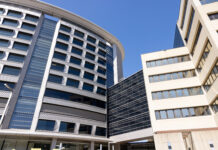Covering just under four square miles, Williamsburg, Iowa is known for its manufacturing prowess in the form of three major players in the region: Kinze Manufacturing, a producer of agricultural equipment; Holden Foundation Seed, the largest independent producer of foundation seed in America before getting acquired by Monsanto in 1997; and Williamsburg Manufacturing. Williamsburg Manufacturing […]
Already a subscriber? Log in
Want to Read More?
Get immediate, unlimited access to all subscriber content and much more.
Learn more in our subscriber FAQ.
- Unparalleled business coverage of the Iowa City / Cedar Rapids corridor.
- Immediate access to subscriber-only content on our website.
- 26 issues per year delivered digitally, in print or both.
- Support locally owned and operated journalism.
Do you want to read and share this article without a paywall?
Click here to purchase a paywall bypass linkCovering just under four square miles, Williamsburg, Iowa is known for its manufacturing prowess in the form of three major players in the region: Kinze Manufacturing, a producer of agricultural equipment; Holden Foundation Seed, the largest independent producer of foundation seed in America before getting acquired by Monsanto in 1997; and Williamsburg Manufacturing.
Williamsburg Manufacturing produces chassis and underbody components for the automotive industry. These parts typically consist of engine and suspension cradles, brake shields, frame rails, radiator supports and battery trays.
“The average person probably doesn’t know that they have components in their vehicle made at Williamsburg,” said Mick Lyons, general manager at the Williamsburg plant.
The automotive manufacturer is leveling up by financing a $46 million project, thanks in part to tax credits and direct financial assistance funded by the Iowa Economic Development Authority (IEDA). There are two components to the award that will benefit Williamsburg.
The first is an investment tax credit of $300,000, a credit against a company’s corporate income tax, given in conjunction with a sales tax refund for new construction, remodeling and other major renovations. This sales tax component amounts to $30,000.
On top of the tax credits, Williamsburg also received a forgivable loan worth $250,000 that they will draw at the end of their contract once they have created the jobs and made all the proposed investments, says Alaina Santizo, a senior product manager at the IEDA.
The City of Williamsburg will plan to provide $50,000 through a Tax Increment Financing (TIF) rebate.
This investment will substantially increase Williamsburg’s workforce and add a brand-new product line to position the company for the future.
Currently employing 208 employees, Williamsburg hopes to add 521 jobs to their team in the next five years, most of which should be high paying.
“Our production associates start at $18.58 per hour,” said Mr. Lyons. “Other roles will be at or above that rate.”
The introduction of high-paying jobs is a major reason Williamsburg was awarded financial assistance from the IEDA.
“The High Quality Jobs program sets up parameters that we [the IEDA] consider for each project,” said Ms. Santizo. “In a given month, you’d see a few of these types of companies coming forward for similarly situated types of awards. We typically consider their capital investment (building construction, manufacturing machinery and equipment, hardware and more), as well as the creation of jobs.”
In Iowa County, the labor shed wage is $26.92 per hour. So for Williamsburg to earn the tax credits, they committed that at least 58 of the new jobs would reach that threshold.
The company also agrees to pay at least 70% of single coverage medical premiums and meet a deductible level of $2,500, as well as pay at least 60% of family coverage medical premiums and meet a deductible level of $5,250, according to IEDA project report documents.
However, the capital investment is “just as important as the jobs,” said Ms. Santizo.
“521 jobs is very significant, and probably more significant than the investment, but it is twofold when we look at a project under the High Quality Jobs program,” she explained. “Of the $46 million proposed, most of that was to establish a new line. $45 million will be spent on a new product line which requires new machinery and equipment, whereas $1 million will be utilized on basic modifications to their facility to allow for additional equipment.”
That new product line Williamsburg will begin to manufacture is electric battery tray side panels.
“These panels help secure and separate electric battery cells in a vehicle,” said Mr. Lyons. “Electrification of vehicles is the pathway many automakers are going down, so securing work early on in the transition to electric helps position Williamsburg for the future.”
The other facility improvements mean working at Williamsburg will have a slightly different feel in a few years than it does today. There is a mix of facility improvements and advanced manufacturing equipment in store, including laser welding cells, automation (robots) and infrastructure to support the welding process. The new automation equipment allows the manufacturing process to be controlled and run more efficiently and reliably, so customers get the parts they expect, said Mr. Lyons.
It’s a move with planned implementation phases, but final equipment installation should occur around 2024. The majority of the 521 new jobs should be filled around 2026, although there is some wiggle room.
“Any shortfall in investment or jobs will result in a pro-rata reduction, or a proportional reduction, in the benefit received,” said Ms. Santizo. “But if they get to the end of the five-year period and they’ve created, let’s say, 470 jobs, then our board has a long history of working with companies and recognizing they’ve made great progress. We often give some additional time to extend the performance period, so they have some flexibility there.”
Not only do these changes provide financial stability to a company hoping to adapt to the times, but this program will also likely support Williamsburg more broadly.
“I think any time a company which operates within their community decides to commit to jobs and new product lines, that’s a positive thing,” said Ms. Santizo. “This particular company is owned by a corporate parent (Magna International), so we know they can probably do this type of investment in lots of places. So having that commitment in Williamsburg is a huge win.”




